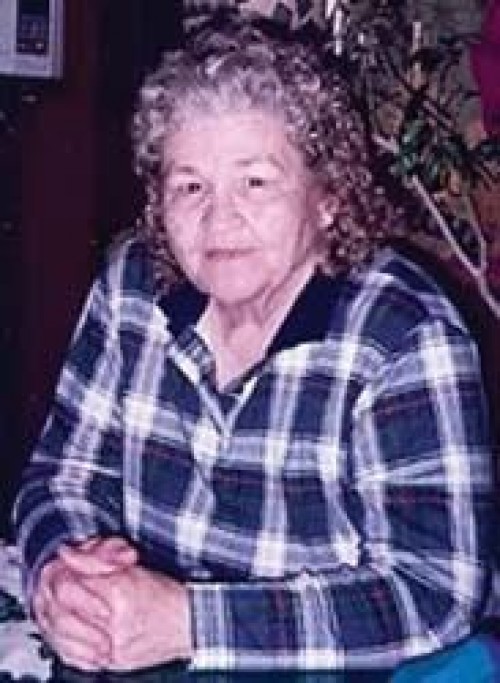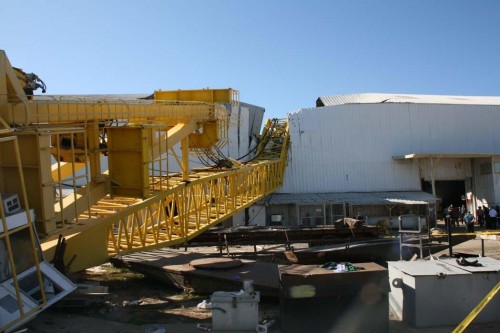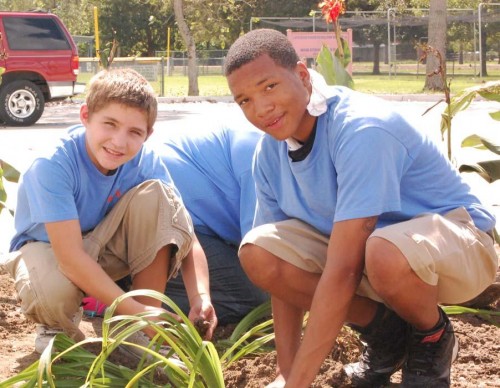
Ms. Alma Allen
November 23, 2009
Industrial accident kills Montegut man
November 25, 2009Bayou Lafourche Marine Institute in Raceland has been a well-kept secret in the Lafourche and Terrebonne parish area for far too long, says Executive Director Lolita Gray.
The non-profit organization is the place where juvenile justice judges opt to send troubled youth instead of having them serve time in a detention center.
According to Gray, the Raceland site is a chapter of the AMIkids foundation, which was formed when Fort Lauderdale, Fla. Juvenile Court Judge Frank Orlando decided to decrease the cycle of juvenile offenders in his courtroom.
At that time, the only options were to send troubled youth to “reform school” for a certain amount of time. He knew that if the youth had any hope of changing their self-destructive behavior, they would need more than just a simple lockdown, Orlando said in a release,.
In 1967, Judge Orlando and Bob Rosof, a biologist and marine scientist, devised a plan to have the youth work with Rosof and, in turn, they would be rewarded for their efforts and appropriate behaviors.
Rosof was then-director of a nonprofit organization that conducted research for the marine science department at Florida Atlantic University in Boca Raton, Fla.
The program worked well; however, it was still lacking a few elements. In 1969, Rosof and Orlando decided to incorporate education as a component of the program.
As a result, the first AMIkids school opened, Florida Ocean and Science Institute in Boca Raton.
AMIkids made its debut in Louisiana with the Baton Rouge Marine Institute in 1986. Since then, nine other programs have opened in Louisiana.
Of the nine, eight are residential schools where the students stay at the facility. The Bayou Lafourche program, or BLMI as the students refer to it, is the only non-residential program in the state.
Gray said BLMI is a Type II alternative school.
The Raceland site opened in 2001 off of La. Highway 90. Youth from Lafourche, Terrebonne and St. Charles parishes participate in the program. Gray and her staff work with approximately 35 to 40 youth, ranging from the age of 13 to 18.
“Many of the youth are on probation with the juvenile justice system,” Gray said.
The teens attend the program as if they were attending regular school Monday through Friday from 8 a.m. to 4:30 p.m. To complete the program, the teens have to complete a five-phase program based upon a point system.
Gray explained that each teen comes into the program as a recruit. And, as they progress, they move up through levels – seaman, first mate, chief and captain.
Reaching the captain level, she said, means they can graduate from the program and return back to school. According to Gray, it could take between six to nine months to complete the program.
“The progress is solely based on them,” she said. “If they follow the rules and make improvements then they move up a level. If they don’t, then they stay where they are.”
“Normally, if a person is not progressing by the seventh month, we don’t have to say anything to them,” Gray added. “They tend to make a change themselves. It’s almost like, ‘OK, if I want to leave here, then I need to do something.'”
Gilbert Lee, 13, has been in the program since June. The Golden Meadow Upper Elementary sixth grader was having trouble in and out of school.
“When Gilbert first came into the program, he was tough as nails,” Gray said. “He didn’t like to be told what to do. He wanted to do things his way. For about a month, he resisted change. But then he started to turn things around.”
Lee said he didn’t know how to channel his energy into something positive. Gray enrolled him in AMIkids’ Anger Aggression Replacement Training, a counseling session where adult leaders help the troubled youths with anger issues.
“The session really helped because I saw that I was not alone. There were other teens in my same situation,” he said.
Since participating in the AART program, Lee believes he has taken the necessary steps for the better.
“I think I have progressed a lot from where I started in such a short time,” Lee said. “I stop back-sassing, picking fights for no reason and making dumb choices.”
“I know it will be hard work,” he added, “but I believe I can do it. I just have to keep talking to the counselors and expressing my feelings. I really have to start associating with good people and keep the negative people who try to make me do bad things away.”
John Ballard, 15, is a Thibodaux High School 10th grader who came to the Raceland site in June. Ballard was also one of Lee’s classmates in AART.
“John was angry all the time,” Gray said. “It didn’t matter what it was, he was just mad about everything. I mean he had a lot of things going on, but it still was no excuse. He was like a time bomb waiting to go off at any moment.”
Ballard said the best part about the AART program was having the counselors guide him.
“The program was good for me,” Ballard said. “I knew I had an anger problem, but I just didn’t know how bad it was until I got here. The counselors and the staff believed in me, they believed that I could change my behavior.
“That meant a lot to me,” he added. “At Thibodaux High, the teachers would just tell me that I wouldn’t make anything of myself if I had a bad temper. But they never told me that I could change.”
Ballard’s driving force, Gray said, is basketball. He hopes to head back to school in the next few months to join the Thibodaux High School basketball team this season.
“I love playing basketball,” he said. “My dream is to play college ball. But, I know if I go back to the way I was, then my dream won’t ever come true.”
Keith Rainey, 15, graduated from the program in October. The Larose Cut-Off Middle School seventh grader was sent to Bayou Lafourche Marine Institute in April.
“Everything was getting to me,” Rainey said in an interview shortly before graduation. “I didn’t know where to turn. I didn’t know what to do. I can see that my actions got me into a whole lot of trouble. I didn’t want to be here at first, but I am glad that I am here right now because I will be a better person when I leave.”
“I had to learn not to depend on what’s going on outside of me,” he added. “I take responsibility for me and my actions, then I don’t have anyone else to worry about.”
Rainey looked forward to heading back to Larose Cut-Off Middle. Prior to leaving the school in April, Rainey was part of Larose Cut-Off Middle School’s “Give Kids the World” program where older students mentor those students who have physical or mental disabilities.
Rainey said he was removed from the program because of his behavior.
“The teacher told me that I was not setting a good example,” he said. “At first, I was upset. But then I realized that it was for the best because I was no good to them like that. I didn’t want them to do what I was doing.”
When asked why the program was so important, Rainey said he wants the opportunity to help a group of students who has had a harder life than he could ever dream of.
“A lot of times, they get picked on in school,” he said. “They don’t have many friends. It’s really sad. I want to be one of the ones to help them out. I felt like I let them down the first time, but I have one more year to get it right. And I am going to get it right this time.”
Gray said to hear the students talk about where they want to be in life is music to her ears.
Bayou Lafourche Marine Institute program has helped many misguided teens, just like Rainey, Lee and Ballard redirect their lives. Gray said the Raceland site has an 80 percent success rate.
Overall, the nationwide program has served more than 95,000 teens. Today, AMIkids offers 56 programs for troubled youths throughout Florida, Georgia, South Carolina, Virginia, Pennsylvania, Texas, Illinois and Louisiana.
The biggest part of the program, in Gray’s opinion, is the partnership it has with the community.
Recently, Gray partnered with the Lafourche Parish Council on Aging to have the teens landscape the exterior of the Raceland Senior Citizen Center. Gray wants more opportunities like that for the teens in her program.
“My kids are starving because we don’t have a lot of things for them to do,” she said. “They look forward to helping out the community. Many of them have done bad things in the community, and they feel that this is a good way for them to give back.”
Gilbert Lee, 13, (left) and John Ballard, 15, work in the garden outside the Bayou Lafourche Marine Institute in Raceland. The teens are among locals to complete the AMIkids’ Anger Aggression Replacement Training course. * Photo by SOPHIA RUFFIN










